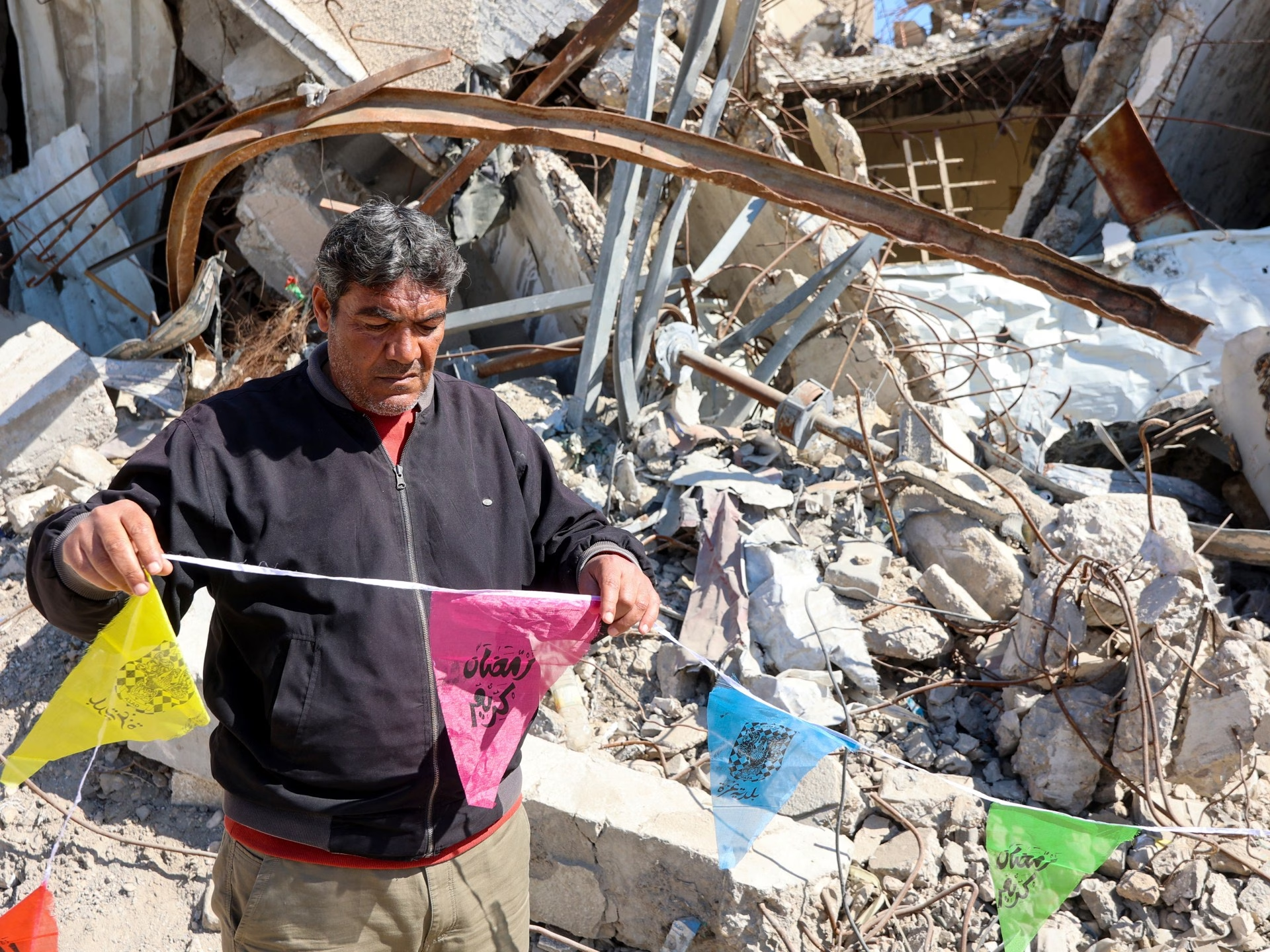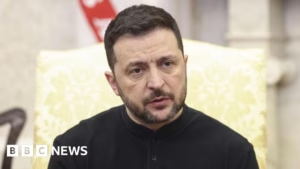As the initial phase of the Israel-Hamas ceasefire in Gaza concludes, discussions regarding the second phase aimed at achieving a lasting truce remain at an impasse. On Saturday, Hamas refused Israel’s proposal to extend the first phase of the truce, describing it as unviable. This stance was articulated by Hamas spokesperson Hazem Qassem, who also stated that no negotiations for a second ceasefire phase are currently taking place, despite the impending expiry of the first phase on Saturday. Qassem alleged that Israel is responsible for the stalled negotiations, accusing it of seeking the release of remaining captives while keeping the option of resuming hostilities open. These remarks come on the heels of Hamas’s earlier call for Israel to advance to the second phase, reaffirming its commitment to the agreement’s terms.
Workers clean rubbish from a road in Gaza City in the central Gaza Strip [Omar al-Qattaa/AFP]
Egypt, Qatar, and the United States, along with Israeli officials, met on Thursday for “intensive discussions” in Cairo, according to Egypt’s state information service. However, these negotiations apparently did not yield any results. The second phase of the ceasefire negotiations is crucial for a comprehensive end to the conflict in Gaza, including the release of all captives and the withdrawal of Israeli forces. Israel reports having 59 captives still in Gaza, with 24 believed to be alive. Israeli Foreign Minister Gideon Saar commented that the country is ready to extend the framework of phase one in exchange for more hostages, but only if feasible.
Professor at Istanbul Zaim University, Sami al-Arian, expressed uncertainty about the future, noting that the American envoy Steve Witkoff has suggested exploring an extension of phase one, aligning with the Israeli stance. This position, however, is unlikely to be accepted by Hamas, potentially complicating the negotiation process further. Humanitarian organizations have consistently emphasized the necessity of continuing the ceasefire to deliver much-needed aid to Palestinians in Gaza, which has suffered extensive damage over 15 months of conflict.
The World Food Programme remarked on the evident impact of secure and sustained humanitarian access, urging for the ceasefire to continue to prevent further devastation. United Nations Secretary-General Antonio Guterres also highlighted the critical nature of the coming days for the negotiations on the second phase of the truce, stressing the importance of the ceasefire and hostage release agreement holding and parties exerting all efforts to prevent the deal from collapsing.
Al Jazeera’s Tareq Abu Azzoum, reporting from Gaza, indicated that there could be an increase in military activity as the obligations to uphold the ceasefire are no longer binding. He added that mediators are attempting to prevent a return to fighting that would only further harm the inhabitants of Gaza. Despite the ceasefire, which commenced on January 19, Gaza’s Government Media Office (GMO) has documented over 350 violations by Israel, including military incursions, gunfire, air strikes, increased surveillance, and the blockade of aid, resulting in the deaths and injuries of dozens of Palestinians.
Additionally, the GMO has highlighted delays in allowing displaced families to return to northern Gaza and shortfalls in the agreed-upon levels of aid entering the enclave.
Source: https://www.aljazeera.com/news/2025/3/1/hamas-rejects-israels-formulation-to-extend-phase-one-of-gaza-ceasefire?traffic_source=rss







